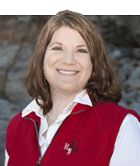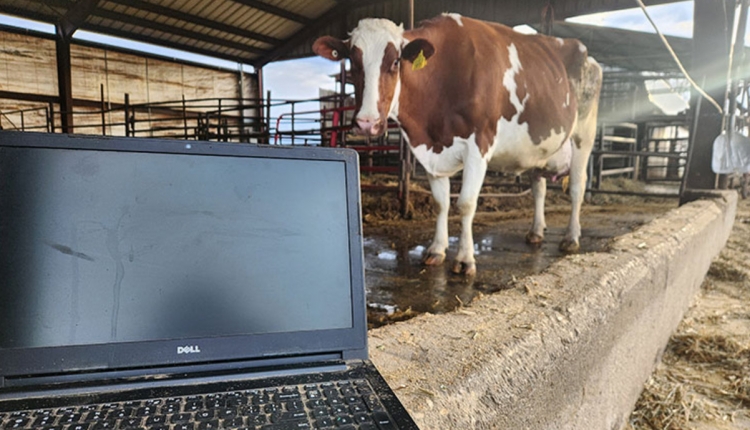June is Dairy Month. Along with celebrating the nutritious products made possible by dairy farmers, the Watertown Agri-Business Club highlighted the changing landscape of the family dairy farm. By hosting their annual dairy breakfast at Hasel Farms, they shared with the community what a modern dairy farm looks like.
Wagon rides took visitors through the freestall barn, along the alfalfa and cornfields and past the manure pit, to which many commented about the lack of odor. Or, if visitors chose, the farm was open to a walking tour, where guests could peak into the milking parlor, visit the calf barn and understand the mechanical process of how manure is converted into bedding. A petting zoo, train display, and of course, the delicious dairy breakfast meal, made the event complete.
There were plenty of volunteers in blue shirts and Hasel family members in green shirts to answer any questions attendees had. Enjoy the slide show of the many facets of the farm that were opened to the community.

While the farms started in 1936, it has undergone many changes in the five decades at the Lake Mills, Wis., location. In the ensuing years, there was gradual growth so more family members could be added to the family business.
The first expansion took place in 1979 and the 150 cows were milked in a double-4 side-opening parlor. Additionally, a free stall barn was built and a manure pit was part of that expansion.
As one generation retired, the next one emerged. Another freestall barn was built as three more family members returned from 2003 to 2012. Improved efficiencies in 2011 included an automatic calf feeder, which eliminated the need to house calves in individual hutches and provided a more stable climate for the calves year-round.
In 2013, another freestall was constructed to allow up to 500 milking cows. And with more cows, a manure solid separating system was installed to recycle manure and use it for bedding.
So, while the 4th generation milks 370 cows in a double 8 parlor, they are poised to welcome the next family member to the fold, if they so choose. They also crop 1,000 acres of land.
"Our intentions to expand are only to allow the next generation to be part of the family farm and keep pace with the growing economy and make use of new technologies that can improve cow health and production," said Steve Hasel.

The author is the online media manager and is responsible for the website, webinars and social media. A graduate of Modesto Junior College and Fresno State, she was raised on a California dairy and frequently blogs on youth programs and consumer issues.
Wagon rides took visitors through the freestall barn, along the alfalfa and cornfields and past the manure pit, to which many commented about the lack of odor. Or, if visitors chose, the farm was open to a walking tour, where guests could peak into the milking parlor, visit the calf barn and understand the mechanical process of how manure is converted into bedding. A petting zoo, train display, and of course, the delicious dairy breakfast meal, made the event complete.
There were plenty of volunteers in blue shirts and Hasel family members in green shirts to answer any questions attendees had. Enjoy the slide show of the many facets of the farm that were opened to the community.

While the farms started in 1936, it has undergone many changes in the five decades at the Lake Mills, Wis., location. In the ensuing years, there was gradual growth so more family members could be added to the family business.
The first expansion took place in 1979 and the 150 cows were milked in a double-4 side-opening parlor. Additionally, a free stall barn was built and a manure pit was part of that expansion.
As one generation retired, the next one emerged. Another freestall barn was built as three more family members returned from 2003 to 2012. Improved efficiencies in 2011 included an automatic calf feeder, which eliminated the need to house calves in individual hutches and provided a more stable climate for the calves year-round.
In 2013, another freestall was constructed to allow up to 500 milking cows. And with more cows, a manure solid separating system was installed to recycle manure and use it for bedding.
So, while the 4th generation milks 370 cows in a double 8 parlor, they are poised to welcome the next family member to the fold, if they so choose. They also crop 1,000 acres of land.
"Our intentions to expand are only to allow the next generation to be part of the family farm and keep pace with the growing economy and make use of new technologies that can improve cow health and production," said Steve Hasel.

The author is the online media manager and is responsible for the website, webinars and social media. A graduate of Modesto Junior College and Fresno State, she was raised on a California dairy and frequently blogs on youth programs and consumer issues.









